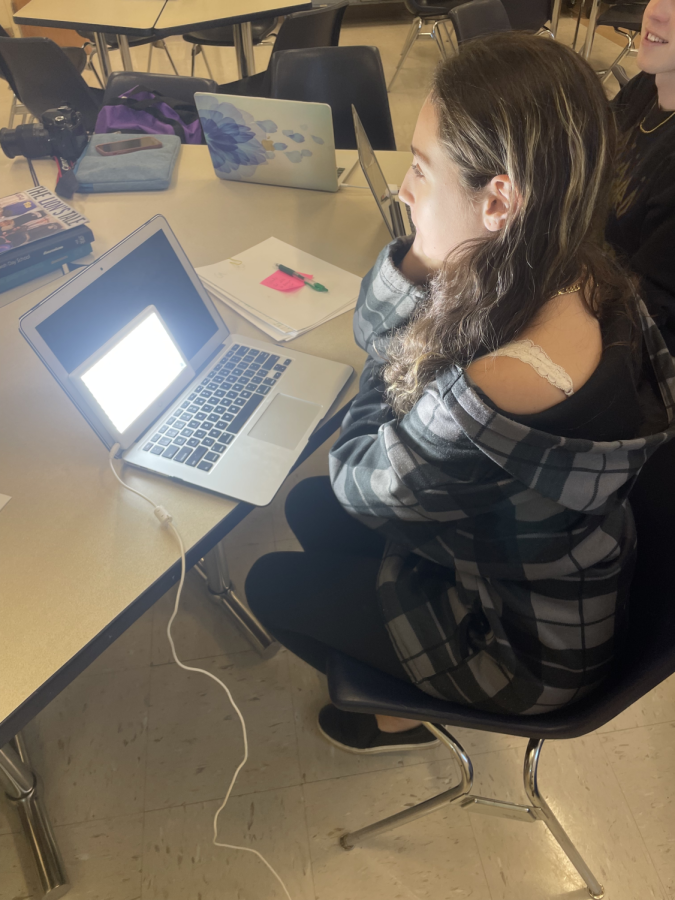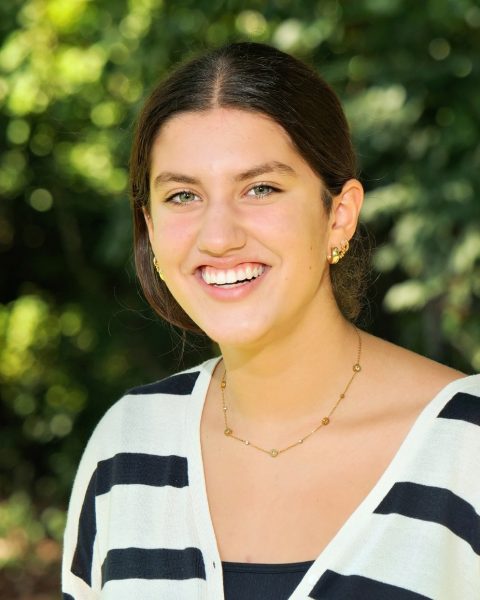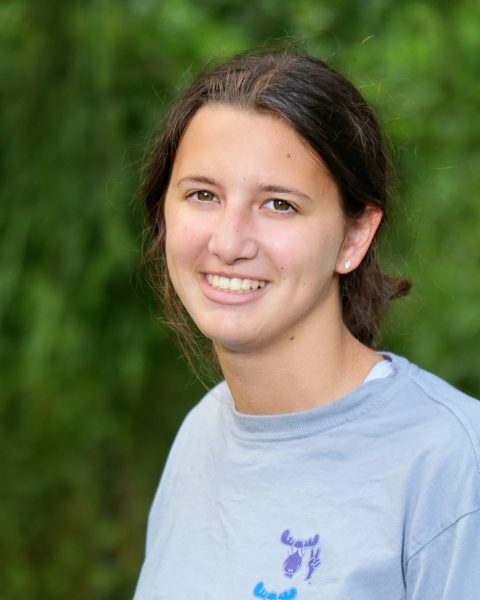Fighting the ‘Winter Blues’ – a look into seasonal depression
Junior Netanya Shaffin sits in front of a box light meant to treat Seasonal affective disorder
November 21, 2022
As students look out their windows to see a pitch-black sky outside, a tired and unmotivated feeling overwhelms their bodies. To their surprise, as they check the clock, it reads 5:45 p.m. – the beginning of what promises to be a long and stressful night of work without any sunlight.
According to Mental Health America (MHA), “Seasonal depression, also known as seasonal affective disorder (SAD) or the ‘winter blues,’ is a subtype of depression or bipolar disorder that occurs and ends around the same time every year.”
Seasonal depression is a result of a lack of sunlight that comes as the days shorten in the winter. This change in light exposure can result in feelings of anxiety, fatigue and mood changes.
As someone who has been diagnosed with Seasonal affective disorder since the winter of 2021, Julia* feels the reverberations of the disorder in all aspects of her daily life.
“I’d fall asleep earlier, I’d sleep in, I’d be sleeping all class, and not really any motivation to pay attention,” Julia said. “Even with friends I didn’t really want to hang out with anyone I just wanted to be in bed all day.”
Julia added that she notices similar symptoms in her peers, and believes that many people experience seasonal depression without even knowing it.
The National Library of Medicine took a poll of adolescents between nine and 19 years old, concluding that 5.5% of all teens in the United States experience Seasonal affective disorder.
High school guidance counselor Marnie Lang recognizes that seasonal depression is a very big struggle and especially affects students’ participation in extracurricular activities. Lang suggests students should try to shift their focus towards productive strategies to cope with the “winter blues.”
“My role comes in as: ‘how are we going to navigate [these] very dark and cold few months so that we can get through and then get back on track,’” Lang said.
Some strategies that Lang recommends are maintaining consistency with scheduled activities and doing things that you enjoy to regain energy. She adds that even though it can feel hard to push through, participating in activities you enjoy is a great way to combat those negative emotions.
To combat seasonal depression, MHA also recommends light therapy. Light therapy, or Phototherapy, is a method in which someone sits in front of a light box that is ten times the intensity of their average domestic lighting. It is intended to “suppress the brain’s secretion of melatonin” and has proven to be effective in combating the effects of seasonal depression.
In addition, Julia said that there were multiple activities such as physical activity and being with friends that helped her cope.
“Just trying to do stuff and even if you want to lie in bed all day – just don’t,” Julia said. “Then eventually you will learn to live with [seasonal depression].”
*Name has been changed to protect confidentiality









